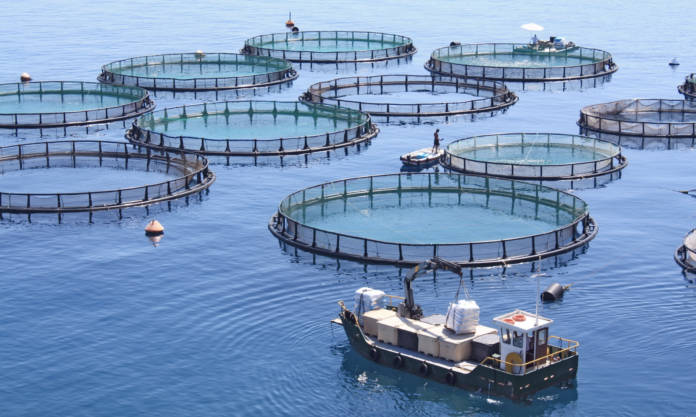
Scientists at Memorial University, the University of Prince Edward Island and aquaculture firm Cargill Aqua Nutrition are using genomics to help the aquafeed industry develop feeds that improve the health of farmed salmon and protect them against sea lice and pathogenic viruses and bacteria.
In the past 20 years, aquaculture production in Canada has more than doubled to close to $3.1 billion in economic activity a year.The industry now employs about 15,000 Canadians and exports 101,000 tonnes of food products.
However, the health of farmed salmon in Canada is perpetually threatened by infectious diseases, including those caused by sea lice, pathogenic viruses and bacteria.
“These collaborative projects, with funding from Genome Canada, have enabled us to bring an entirely new realm of information to bear on scientific problems that, otherwise, would have taken many more years to solve. This has allowed us to better serve our shareholders, our clients, and Canadian and international consumers.” – Dr. Richard Taylor, senior research scientist, Cargill Aqua Nutrition
The quality of feed can affect salmon health. Better feed can enhance fish health, reduce the need for antibiotics and improve the rate at which fish grow. But until now, there has been no practical way for aquafeed companies to measure how well novel feeds work beyond weighing the fish and judging feed effectiveness using growth rates.
In the Genome Canada- funded Biomarker Platform for Commercial Aquaculture Feed Development project, launched in 2014, Dr. Matthew Rise of Memorial University, Dr. Richard Taylor of Cargill Aqua Nutrition (a division of Cargill, which purchased salmon nutrition company EWOS in 2015) and other collaborators are identifying and validating salmon genes related to growth, for inclusion in a biomarker panel. From individual fish, the researchers analyze the expression of approximately 30 genes associated with disease response and growth to determine the effects of various feeds and ingredients at the genomic level. One example of this is the impact of diet on lipid metabolism or antiviral immune response.
The process of translating that information into better-quality feed is about more than just boosting immunity.The genetic biomarkers enable researchers to track what each pathogen
or other immune stimulus does to salmon and what a potential treatment does when added
to salmon feed. For bacterial infection, for example, it is important to control chronic inflammation. For viral infection, controlling digestible energy and adding immune stimulants may be necessary.
The genomic tools developed through this project allow Cargill Aqua Nutrition, one of the world’s largest producers of aquafeeds, to determine right down to the cellular level how fish are impacted by the feed. Furthermore, the company is able to quickly and accurately assess the impact of new feed ingredients on fish rather than waiting months for a fish to show a noticeable change in size.
This technology is helping Cargill Aqua Nutrition to improve their feed formulas and develop new, high-quality feeds. The company is commercializing new feeds within the life of the project, with more new products likely to follow in the coming years. Cargill Aqua Nutrition sources approximately 80 per cent of feed ingredients from Canada, and sells feed to Canada, the U.S.A., Mexico and Asia.
Dr. Rise, Dr.Taylor, Dr. Mark Fast of the University of Prince Edward Island and their collaborators subsequently received funding for a second GAPP project in 2016 – Integrated Pathogen Management of Co-infection in Atlantic Salmon.This project uses the tools and knowledge developed in the Biomarker Platform project to better understand salmon response to a very complicated situation that can occur at salmon farms: the exposure of fish to more than one pathogen at a time (co-infection).
This academic–industry partnership will result in the increased sustainability of the Canadian salmon industry, the improvement of animal welfare in the aquaculture industry and the application of these same biomarkers to studies of wild salmon stocks.
Both Genomic Applications Partnership Program projects – the $3.8-million Biomarker Platform for Commercial Aquaculture Feed Development project and the $4.5-million Integrated Pathogen Management of Coinfection in Atlantic Salmon project – involve partnerships with Genome Atlantic and others.















